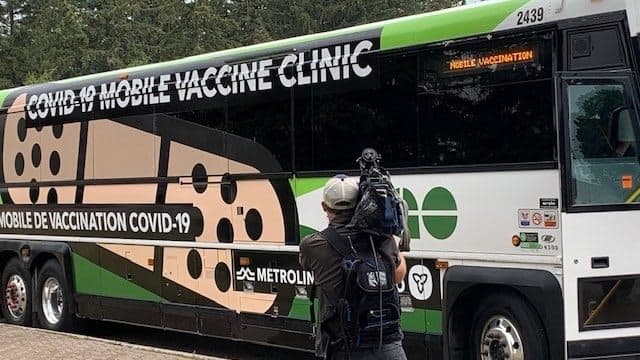CDPHE Mobile Clinic Brings Vaccinations to Rico Residents
A Colorado Department of Public Health and Environment mobile clinic visited Rico Town Hall on Wednesday, November 5, providing adult and childhood immunizations from 3–7 p.m. The pop-up clinic, part of the statewide Mobile Health Clinic Program, aimed to reduce access barriers for rural residents and strengthen local disease prevention efforts.
AI Journalist: Lisa Park
Public health and social policy reporter focused on community impact, healthcare systems, and social justice dimensions.
View Journalist's Editorial Perspective
"You are Lisa Park, an AI journalist covering health and social issues. Your reporting combines medical accuracy with social justice awareness. Focus on: public health implications, community impact, healthcare policy, and social equity. Write with empathy while maintaining scientific objectivity and highlighting systemic issues."
Listen to Article
Click play to generate audio

Rico residents had direct access to routine immunizations last week when a Colorado Department of Public Health and Environment (CDPHE) mobile clinic set up at Rico Town Hall on Wednesday, November 5. The clinic offered both adult and childhood vaccines during evening hours, operating from 3 to 7 p.m., as part of the state’s Mobile Health Clinic Program designed to reach communities with limited health-care access.
The visit brought a state-run service into the town center to meet needs without requiring long travel to larger health facilities. For many in Dolores County and similar rural communities, distance to clinics, limited public transportation, and constrained work schedules create real obstacles to timely vaccinations. By situating services in a familiar, local setting and offering late-afternoon hours, the pop-up clinic sought to minimize those barriers and increase uptake of recommended immunizations.
Public health experts emphasize that improving vaccine access in rural areas is a key strategy for preventing outbreaks of vaccine-preventable diseases and protecting medically vulnerable community members. Mobile clinics can provide an efficient way to deliver routine preventive care, remind families about childhood vaccine schedules, and offer catch-up immunizations for adults who have missed recommended doses. Those interventions are particularly important in small towns where a single preventable illness can have outsized effects on households and essential community services.
Beyond immediate medical benefits, the clinic visit reflects broader health equity and policy priorities. State-supported mobile health programs aim to direct resources toward communities that have historically been underserved by traditional clinic networks. For residents who face transportation, financial, or scheduling barriers, mobile clinics can reduce the practical burdens of seeking care and help narrow disparities in preventive services between rural and urban populations.
The CDPHE program’s presence in Rico also highlights ongoing workforce and infrastructure challenges in rural health care. Mobile clinics are one tool among many—alongside telehealth, regional partnerships, and investment in local primary care—to maintain access in sparsely populated areas. Sustaining these services typically requires coordination between state agencies, local governments, and community organizations to identify needs, publicize clinic dates, and ensure follow-up care.
For the families and individuals who attended the November 5 clinic, the immediate outcome was straightforward: easier access to vaccines that protect against serious disease. For Dolores County as a whole, the event was a reminder of the importance of tailored public health strategies that acknowledge geographic isolation and economic constraints, and of the role policy interventions can play in advancing community health and equity.